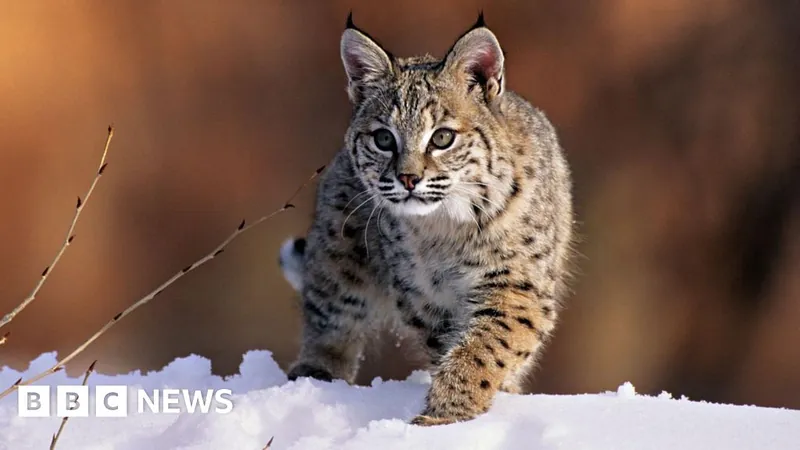
Tragic Bird Flu Outbreak Claims Lives of 20 Big Cats at Washington Sanctuary
2024-12-26
Author: Yan
In a heartbreaking incident, twenty big cats, including a magnificent Bengal tiger and four cougars, have succumbed to bird flu at the Wild Felid Advocacy Center in Washington State over the past few weeks.
"This tragedy has deeply affected our team, and we are all grieving the loss of these incredible animals," the animal sanctuary shared on Facebook, revealing the emotional toll of this unexpected crisis.
The avian influenza virus, primarily transmitted through respiratory secretions and contact between birds, has struck not only avian populations but also has a dangerous impact on mammals. The virus can spread to mammals that eat infected birds or come into contact with contaminated environments.
In response to the outbreak, the sanctuary has taken precautionary measures, placing itself under strict quarantine and closing its doors to the public to minimize the risk of further contagion. “We’ve never had anything like it; they usually die basically of old age,” said sanctuary director Mark Mathews, highlighting the unprecedented nature of this event. “This virus is pretty wicked.”
The unfortunate deaths of these big cats occurred between late November and mid-December, and the sanctuary reported losses that included five African serval cats, four bobcats, two Canada lynx, and one Bengal tiger. Currently, only 17 cats remain under care at the facility.
Cats are particularly susceptible to bird flu, with symptoms often starting subtly but escalating to severe pneumonia within just 24 hours. The sanctuary emphasized the urgency of the situation, urging awareness of the virus's rapid progression.
Adding to the broader concern, bird flu has not only impacted wildlife but has also been spreading among cattle and poultry across the United States. Since March, instances of the virus in cattle have been reported for the first time, raising alarms in the agricultural community.
The Centers for Disease Control and Prevention (CDC) has reported a total of 61 human cases of bird flu in the US since April 2024, although they assure the public that the risk remains low, and human-to-human transmission has not been documented. While most human cases have exhibited mild symptoms, there remains the threat of severe infection, as evidenced by one hospital case in Louisiana this month.
In California, an emergency was declared by Governor Gavin Newsom in response to the outbreak affecting the state's dairy cows, marking a critical moment for government intervention to manage the crisis effectively.
The devastating loss at the Wild Felid Advocacy Center is a stark reminder of the ongoing threats posed by zoonotic diseases and underscores the importance of vigilance and proactive measures in safeguarding wildlife, livestock, and public health alike. As the search for solutions continues, the plight of these majestic big cats serves as a poignant call to action.






 Brasil (PT)
Brasil (PT)
 Canada (EN)
Canada (EN)
 Chile (ES)
Chile (ES)
 España (ES)
España (ES)
 France (FR)
France (FR)
 Hong Kong (EN)
Hong Kong (EN)
 Italia (IT)
Italia (IT)
 日本 (JA)
日本 (JA)
 Magyarország (HU)
Magyarország (HU)
 Norge (NO)
Norge (NO)
 Polska (PL)
Polska (PL)
 Schweiz (DE)
Schweiz (DE)
 Singapore (EN)
Singapore (EN)
 Sverige (SV)
Sverige (SV)
 Suomi (FI)
Suomi (FI)
 Türkiye (TR)
Türkiye (TR)